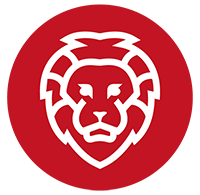Labs and ECs
Laboratories
The Laboratory (Lab) is a concept of a “garage” which enabled inventors and entrepreneurs of America to foster their own passion. For example, Steve Jobs and Steve Wozniak started their company called Apple in a garage; Michael Dell started his company called the Dell Computers in a garage; Jeff Bezos started a company called Amazon in a garage, etc. In like manner, laboratory is a center of educational experience that can be either teacher or student led during the school hours as a co-curricular activity and refers to the one-on-one and small group sessions between students and teachers which augment traditional classroom instruction, combining study, research, and collaboration.
As students are expected to take ownership of their academic career, we focus on collaboration and cooperation as a vital part of this learning. They gain the skills to solve problems like scientists by learning from experimentation. HCAS offers a wide variety of Lab activities for our students. Students are free to explore their interests in an individualized manner, and they have the autonomy to decide what they wish to learn and how to complete learning assignments. They take responsibility for time management and completing tasks. They can choose between working on independent work, one-on-one time with teacher mentors, collaboration in small groups with peers, or peer tutoring.
Students and teachers schedule these labs at specified times throughout the school day to discuss projects, expand upon questions of interest that arise in class, clarify issues, and explore new facets of a topic they want to pursue. Labs are targeted at students in MUS, and teachers are encouraged to open a Lab based on their own talents. Students select Labs based on their interests and those of their peer group. Ideas are developed through peer interactions, and projects are approved by teachers, who are assigned to facilitate the Lab. Teachers who are facilitating a Lab will show students how to plan and complete a task, provide the support and encouragement needed, and assist students in making progress towards completing a difficult task.
Options change each year, but some examples of the options are as follows:








































